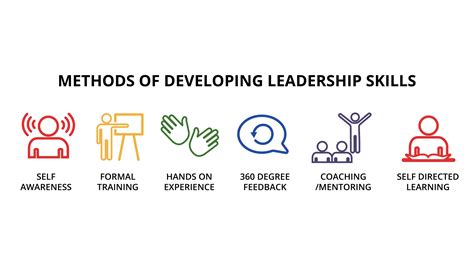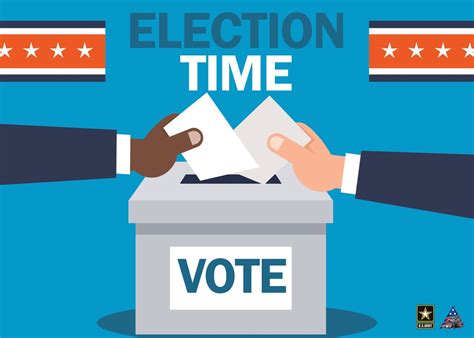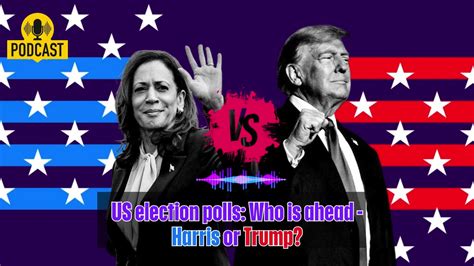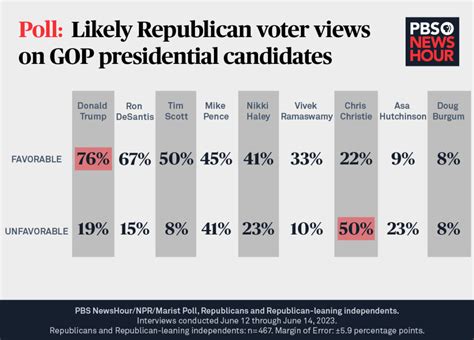Explore the significance of hockey leadership skills, including communication, teamwork, training, and their impact on confidence both on and off the ice.**Developing Leadership Skills Through Hockey**
In a world where leadership qualities are increasingly valued across various sectors, hockey emerges as an exceptional platform for cultivating these essential skills. Beyond the thrill of the game, hockey offers a dynamic environment where players can develop critical leadership attributes, such as communication and teamwork. This article delves into the significance of hockey as a nurturing ground for leadership, exploring the key skills fostered through rigorous training and real-game experiences. From enhancing confidence to creating opportunities for practical application both on and off the ice, we will examine how hockey transforms athletes into proficient leaders. Join us as we uncover the profound impact of hockey leadership skills development and its far-reaching benefits in personal and professional realms.
Understanding The Importance Of Hockey Leadership Skills
Developing hockey leadership skills is crucial for players at all levels, as these skills not only contribute to on-ice success but also foster personal growth and team cohesion. Effective leaders in hockey inspire their teammates, enhance collaboration, and drive performance, making their presence invaluable within any team environment.
First and foremost, hockey leadership skills contribute significantly to team dynamics. A team with strong leaders often displays enhanced communication, which is vital during both practice sessions and games. Leaders mitigate misunderstandings and provide clear direction, helping teammates remain focused on the goals. This clarity establishes an environment where players feel valued and motivated, fostering stronger relationships both on and off the ice.
Moreover, leadership skills developed through hockey encourage accountability among players. When individuals recognize the importance of their roles and how they contribute to the team’s success, they are more likely to stay committed and work harder. Leaders lead by example, demonstrating work ethic, resilience, and a positive attitude, which motivates teammates to mirror these behaviors.
Additionally, the development of hockey leadership skills instills confidence in players. As individuals progress in their ability to communicate effectively and make strategic decisions, they develop greater self-confidence in their capabilities. This confidence is essential, not only in crucial game moments but also in facing challenges throughout life.
The importance of hockey leadership skills extends beyond the rink. These skills prepare players for various leadership roles in the future, whether in sports, their careers, or personal endeavors. By cultivating the ability to lead, listen, and inspire, players emerge not just as athletes but as well-rounded individuals ready to tackle any challenges that may come their way.
Key Hockey Leadership Skills: Communication And Teamwork
Effective leadership in hockey heavily relies on hockey leadership skills, particularly in the areas of communication and teamwork. These two components are vital as they determine how well players can work together, both on and off the ice.
Communication in hockey extends beyond simply shouting instructions. It involves understanding non-verbal cues, actively listening to teammates, and fostering an open environment where everyone feels comfortable sharing their ideas and concerns. Leaders on the team should initiate conversations, provide constructive feedback, and ensure that all players are aligned in strategy and execution. This skill not only strengthens bonds among team members but also enhances overall performance during games.
Teamwork, on the other hand, is about collaboration and collective effort. A successful hockey team is one where players know their roles and how they contribute to the team’s success. Leaders should encourage a team-first mentality, emphasizing that every player’s contribution is crucial. This can be achieved through team-building exercises, practice drills that focus on synchrony, or even casual off-ice activities that promote trust and camaraderie.
In essence, honing hockey leadership skills related to communication and teamwork creates a solid foundation for any hockey team. When players communicate effectively and work together seamlessly, it not only boosts team dynamics but also creates a winning culture that can lead to success on the ice.
How Training Enhances Hockey Leadership Skills
Training is a fundamental aspect of developing hockey leadership skills. Through structured practices, players are encouraged to take on various roles that challenge and refine their abilities. One significant way training enhances these skills is through intense teamwork exercises. When players are placed in different positions during drills, they learn to see the game from multiple perspectives, fostering a deeper understanding of team dynamics and responsibilities.
Moreover, regular feedback from coaches during training sessions plays a critical role in skill development. Coaches often focus on aspects such as communication, strategy execution, and conflict resolution, which are vital components of hockey leadership skills. This environment encourages players to reflect on their actions and understand how their decisions impact the team.
Additionally, training scenarios that mimic high-pressure situations help players learn how to remain calm and assertive when it matters most. These experiences not only improve their decision-making ability but also prepare them for real-game situations where their leadership skills will be put to the test.
Lastly, the collaborative nature of hockey training fosters trust among teammates. Building strong relationships through consistent practice lays the groundwork for effective leadership. Players become more comfortable providing constructive feedback, motivating one another, and stepping into leadership roles, whether in practice or during games. This ongoing process solidifies the understanding that hockey leadership skills are developed collectively, enhancing both individual growth and team performance.
Applying Hockey Leadership Skills On And Off The Ice
Developing hockey leadership skills during practice and games greatly benefits players beyond the rink. These skills foster personal growth, build character, and enhance social interactions. By applying lessons learned in hockey to everyday life, players can navigate various challenges effectively.
One key area where hockey leadership skills translate seamlessly is in teamwork and collaboration. Whether in school projects or professional settings, the ability to work cohesively with others is invaluable. Players who have honed these skills learn to appreciate diverse perspectives and recognize the strengths of their teammates. This capability can lead to more productive group dynamics in various contexts.
Effective communication, another fundamental aspect of hockey leadership skills, is essential off the ice as well. Whether expressing ideas clearly in discussions or presenting arguments in a debate, players grow accustomed to articulating their thoughts confidently. This adaptability boosts their effectiveness, whether in personal relationships or professional environments.
Moreover, the discipline and resilience developed through rigorous hockey training also have profound implications outside the sport. Players learn to set goals and work tirelessly to achieve them, fostering a strong work ethic. This mindset is applicable in academic pursuits, career ambitions, and personal challenges, creating a solid foundation for future success.
The application of hockey leadership skills extends far beyond the ice. By translating these skills into other facets of life, players enhance their ability to collaborate, communicate, and thrive in various situations, ultimately shaping them into well-rounded individuals capable of overcoming obstacles and achieving their goals.
Measuring The Impact Of Hockey Leadership Skills Development
Measuring the impact of Hockey leadership skills development is essential for understanding how effectively these skills translate into real-world benefits for players. The evaluation of leadership skills can be approached through several methodologies:
| Method | Description | Benefits |
|---|---|---|
| Surveys and Questionnaires | Gather feedback from players and coaches on observed changes in leadership abilities. | Provides quantifiable data on perceptions and growth. |
| Performance Metrics | Analyze performance statistics before and after leadership training sessions. | Tracks improvements in on-ice and off-ice behaviors. |
| Peer Reviews | Implement a peer review system where players assess each other’s leadership skills. | Encourages accountability and peer learning. |
| Focus Groups | Conduct discussions with players to explore their understanding and application of leadership skills. | Gathers qualitative data on team dynamics and confidence levels. |
By utilizing these methods, teams can effectively track the growth of Hockey leadership skills, ensuring that training programs are impactful and tailored to the needs of each player. Continuous assessment not only fosters a culture of leadership but also motivates players to take initiative within their teams. As they observe measurable changes in their abilities, players can further enhance their confidence and commitment to personal and collective growth.
Building Confidence Through Hockey Leadership Skills Practice
Practicing hockey leadership skills is crucial for players seeking to build confidence both on and off the ice. Each training session not only hones players’ physical abilities but also fosters mental resilience and self-assurance. Here’s how specific practices contribute to building confidence:
- Setting Clear Goals: By establishing achievable objectives during practices, players can track their progress and celebrate small victories, which in turn boosts their confidence.
- Role-playing Scenarios: Engaging in situational drills that mimic game scenarios allows players to prepare for high-pressure moments, enhancing their comfort level in real-game situations.
- Receiving Feedback: Constructive feedback from coaches and teammates helps players identify their strengths and areas for improvement, fostering growth and increasing their self-esteem.
- Encouraging Team Dynamics: Regular collaborative drills reinforce the understanding that leadership is not only about individual performance but also about uplifting teammates, which cultivates a supportive environment that nurtures confidence.
- Visualization Techniques: Mental practice through visualization can enhance a player’s belief in their abilities, preparing them for successful performances during games.
Continuous practice of hockey leadership skills transforms players into confident leaders who are ready to take charge in challenging situations while inspiring their teammates to perform at their best.
Frequently Asked Questions
How can playing hockey enhance leadership skills?
Playing hockey fosters teamwork, strategic thinking, and communication, which are all essential components of effective leadership.
What specific leadership skills can players develop through hockey?
Players can develop skills such as decision-making, conflict resolution, motivating teammates, and adapting to rapidly changing situations.
Are there particular positions in hockey that emphasize leadership?
Yes, positions like captain or goalie often require players to take on leadership roles, managing both team dynamics and game strategies.
How does teamwork in hockey correlate with leadership in other areas?
The collaboration required in hockey mirrors teamwork in business and social settings, highlighting the importance of collective effort to achieve goals.
Can the principles learned from hockey apply to professional life?
Absolutely! The discipline, resilience, and strategic thinking honed through hockey can significantly enhance one’s professional capabilities.
What age is best to start developing leadership skills through hockey?
Children as young as 6-8 years can begin developing leadership skills in hockey, as team dynamics and roles can start to be introduced in youth leagues.
How can coaches facilitate the development of leadership in their players?
Coaches can foster leadership by creating an environment that encourages communication, giving players responsibilities, and promoting a growth mindset.









